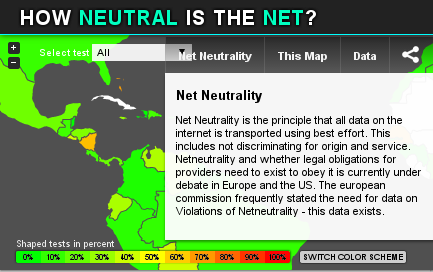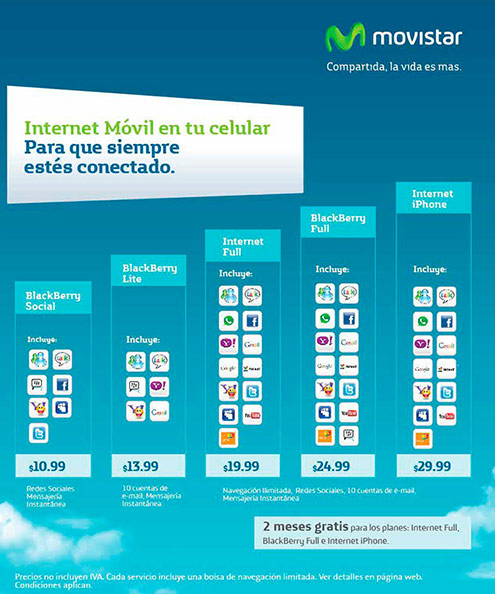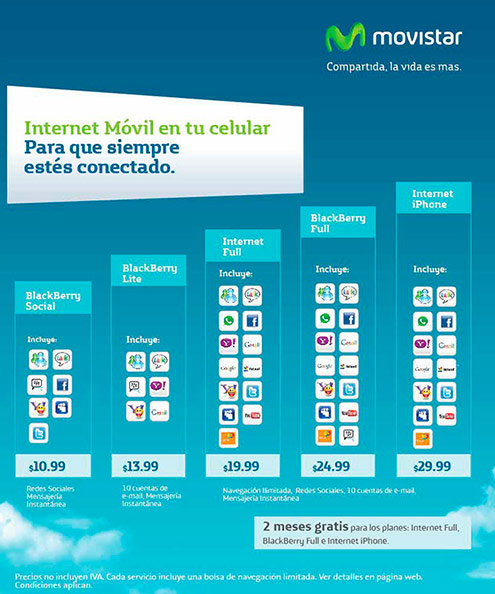 All over the world discussions are emerging on net
neutrality, online
censorship and surveillance as urgent topics. As we can see, companies
try to sell the internet service by service or even the data a about
their clients in order to make more money off of their clients. And as
well as some governments who's aim is to control their citizens by
violating their principals of a neutral web, free access to information
and collecting data by spying on the population. Still, there are some
countries, Nicaragua being one of them, that are (almost) not suspects
to investigation. As a resident of this lovely country, I would like
contribute by giving an overview of issues I personally am aware of, but
taking into account that this article cannot be claimed fully accurate.
All over the world discussions are emerging on net
neutrality, online
censorship and surveillance as urgent topics. As we can see, companies
try to sell the internet service by service or even the data a about
their clients in order to make more money off of their clients. And as
well as some governments who's aim is to control their citizens by
violating their principals of a neutral web, free access to information
and collecting data by spying on the population. Still, there are some
countries, Nicaragua being one of them, that are (almost) not suspects
to investigation. As a resident of this lovely country, I would like
contribute by giving an overview of issues I personally am aware of, but
taking into account that this article cannot be claimed fully accurate.
First, this article gives a short overview over the main topics: censorship, net neutrality and surveillance. Afterwards it lists every ISP in the country with more detailed information.
Censorship
There has been only one case of censorship in Nicaragua publicly reported: On December 2011, Claro censored a website for unsatisfied customers: claroqueno.com (not available anymore). IP based blocking was used, therefore not only one website but also other websites hosted on the same shared hosting package were not available anymore. Because of bad publicity the company repealed the censorship some weeks later. Further more, I heard through unconfirmed sources, that between 2006 and 2012 websites with information on theft of services was made unavailable by Claro through IP blocking as well.
These are examples of how Internet Service Providers (ISP) and other institutions can act in an arbitrary way in Nicaragua in any moment and not be aware of the seriousness of the issues of censorship.
Net neutrality
The bigger companies in Nicaragua violate the principals of net neutrality and all the smaller Internet Service Providers (ISP) offer general free internet. Mobile internet is generally more limited than residential connections.
Yota, the second largest ISP in the country is the only one limiting residential internet connections. It throttles the velocity on BitTorrent ports, which is generally used for file sharing.
There are also rumors about when reaching a monthly limit (30GB), Yota throttles down the speed for this specific account till the end of the month.
Both cell phone network operators (Claro and Movistar) offer mobile internet packages (3G, HDSPA and UMTS) limited by the amount of transferred data. This is not yet a full net neutrality infraction but it is worth mentioning, as it is a worldwide tendency of selling limited mobile internet.
Besides that and even worse, both operators offer special plans to use certain applications exclusively (like Facebook, WhatsApp or Email), which leads us into an internet that is sold application by application.
Surveillance
No active surveillance has been reported so far, neither any abuse by telecommunication companies nor the Nicaraguan government. The government, as most countries around the world, aims to have centralized control over all national internet exchange points, as well as the main telecommunication infrastructure and ISPs. Although, political opposition and national press recently did bring up concerns about governmental surveillance through a planned, but not completed, modification of the article 92 of the Nicaraguan constitution (see the articles in La Prensa and Confidencial). But this looked to be more of a political play, as the planned modifications would not have had any legal effect at all on surveillance of the population. But, we can assume that all of Nicaragua's communication can be or is intercepted by the government due to the fact that the main infrastructure is controlled by governmental institutions. This is the case in all countries (from my point of view) and especially after the worldwide NSA scandal we learned that most countries should have control over their main communication infrastructure. Anyway, keep your data encrypted no matter where you are!
Internet Service Providers
This list ISPs that are the ones which do not censor nor limit the internet in any way:
- IBW (residential and corperate)
- Tigo Business, fusion of former Amnet and Navega (corperate)
- Ideay (cooperate)
- Alfa (corperate)
- Netport (corperate)
- Alliance (corperate) belongs to Claro
- Nic@Net (residential and corperate)
- WiFiNic (corperate)
- BT Nicaragua (corperate)
All these are the smaller Internet Service Providers and mainly available for the corporate sector only. Together they had a market share of 14.29% in 2011 [TELCOR].
The bigger ISPs are the ones that are involved into issues on net neutrality:
Claro
The multinational communication company Claro offers its services in a lot of Latin American countries and is owned by Carlos Slim Helú (richest man in the world). Claro also holds the Nicaraguan market strongly in its hands (65.74% of Internet connections in 2011 [TELCOR]). Claro, besides being an ISP, is the biggest provider for phone land lines, cell phones and television via cable or satellite.
In December 2011, Claro censored a site for unsatisfied customers: claroqueno.com (not available anymore). Claro's clients could not visit this site for some weeks. Because of bad publicity the company repealed the censorship within less than one month.
Unconfirmed sources informed me about Claro blocking theft of service websites like for example plexinium.com.ni (not available anymore) from 2006 till 2012, using as well IP blocking techniques.
No recent blocking by Claro has been reported within the year 2013.
As the biggest service provider for cell phones (60.78% in 2011 [TELCOR]) mobile internet is sold as pre-paid packages or regular plans, including a transfer limit of a maximum amount (Claro website).
Furthermore there are special offers that are based on services. For example, a package that includes Facebook only for pre-paid customers, or social networks only and SMS free for one day (see picture number 3), and other dubious offers.
Yota
A relatively new player on Nicaragua's telecommunication market is the Russian company Yota, which offers WiMax to individuals and fiber optical connections for corporate clients. Nevertheless Yota became the second biggest ISP with 11.21% in 2011 [TELCOR]. The company is providing services only in the capital, Managua and one near by city, Masaya. Yota commits the biggest violation on net neutrality, by limiting the internet velocity by the ports of BitTorrent (ports 6881 to 6969). I received no comment from Yota's public relations contact asking them for an explanation for the selective throttling down of the internet.
Additionally, a non-confirmable source informed me about Yota limiting velocity down to 2Mbit for the rest of the month after one account has downloaded over 30GB of data within the same period.
Movistar
Movistar is the second biggest cell phone network operator (39.22% in 2011 [TELCOR]) and the third biggest ISP within the market share of 8.76% in 2011 [TELCOR]. It is owned by the internationally known Telefonica. I have no information on limitations for residential internet. Cell phone internet is sold by pre-paid transfer packages valid for different amount of days: 150Mbyte a day, 300Mbyte/three days, 500Mbyte/one week or 1GB/15
days (see Movistar website). Furthermore there are special internet plans offering certain use of
applications or protocols for different prices. This is a strong decision on violating net neutrality, not offering the internet as it is rather than charging for each one of the services the client wants to use. This is how nice advertisement looks like for violating net neutrality in Nicaragua:



